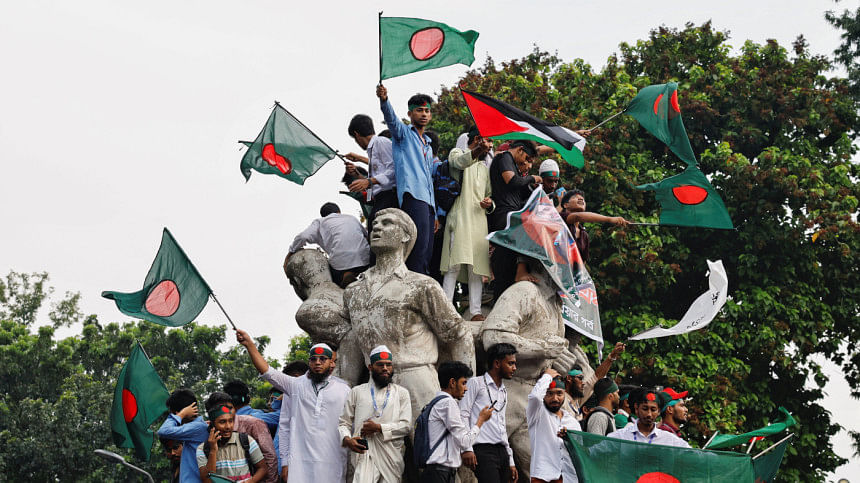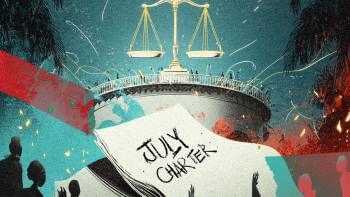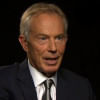When revolutions forget why they began

All societies carry within them the seeds of transformation. Like tectonic plates beneath the Earth's surface, the political and moral foundations of a society often shift in silence until the pressure becomes unbearable and an earthquake erupts. That eruption is what we call "change"—revolution, reform, rebellion, or resistance. In the face of injustice, the arrogance of rulers, or institutional decay, societies respond with forceful motion, demanding realignment. But history often looks upon these ruptures not as roads to redemption, but as repetitive cycles of hope turned to despair.
If we look back through the corridors of history, from the fall of the Roman Republic to the Arab Spring, the one thread that connects these upheavals is the tragic irony that the very structure meant to uplift the masses ends up replicating the oppression it sought to dismantle. Take the French Revolution, for instance. The storming of the Bastille on July 14, 1789 was meant to herald liberté, égalité, fraternité. But soon, Robespierre's Reign of Terror painted Paris in blood. The monarch was gone, yes, but in his place came new tyrants draped in the banners of liberty. Edmund Burke warned presciently in Reflections on the Revolution in France (1790), "The effect of liberty to individuals is that they may do what they please: we ought to see what it will please them to do before we risk congratulations." Burke understood that revolution is not always rational, and that liberty, once unleashed without vision, can turn into its opposite.
And yet, each new revolution sings the same song—that the past was poisoned, that the future holds healing, that this time it will be different. In Bangladesh, how many times have we broken with the past to start anew? How many times has the slogan of justice been raised, only for the people to find that the judge has merely changed costumes? A society cannot evolve if it only changes its rulers but keeps the architecture of oppression intact.
The very psychology of power lies at the heart of this betrayal. As Lord Acton famously wrote, "Power tends to corrupt, and absolute power corrupts absolutely." Yet, there's a more insidious truth beneath this adage: power doesn't merely corrupt, it seduces. And once seduced, even the purest revolutionaries forget their origins. The heat of power draws opportunists, "millions of bees," as it were, who arrive not to pollinate progress but to bask in its heat, building a suffocating cloud of illusion around the leader. Truth is distorted, conscience is numbed, and change becomes cosmetic.
This is not merely politics; it is a tragedy in the Aristotelian sense, where the protagonist's downfall is born of "hamartia," a fatal flaw. The revolutionaries believe they are incorruptible. They believe that, by virtue of being on the "right side" of history, they are immune to the temptations that ruined others before them. And yet, when they assume power, they often forget that power itself is cursed.
Che Guevara stands out in this context not for what he conquered, but for what he refused. After the Cuban Revolution's success, Che could have enjoyed the spoils of victory. He was a minister, a hero, adored by millions. But he turned away. In his 1965 letter to Fidel Castro, he wrote, "I feel that I have fulfilled the part of my duty that tied me to the Cuban revolution… I bid you farewell to start new battles." He went to the Congo, then Bolivia—not for power, but for principle. He chose the jungle over the palace. In doing so, Che Guevara gave us a rare example of what a revolutionary ought to be: not a ruler, but a relentless seeker of justice.
How many such figures can history claim? Nelson Mandela, perhaps, comes close. After 27 years in prison, he emerged not with vengeance but with vision. He served only one term as the president of South Africa, prioritising reconciliation over retribution. He once said, "Real leaders must be ready to sacrifice all for the freedom of their people." But these examples are tragically rare. More often, change is reduced to a mere change in symbols, flags or faces, not substance.
George Orwell understood this better than anyone. In Animal Farm, he writes of the animals who overthrow their human farmer to build an egalitarian paradise. But as the pigs assume control, they become indistinguishable from the oppressors they replaced. The final line pierces with prophetic irony, "The creatures outside looked from pig to man, and from man to pig, and from pig to man again; but already it was impossible to say which was which."
And so, we are left with the same cycle: protest, change, disappointment, silence. The people bleed, but the wounds never heal. The oppressed scream, but the system remains deaf.
Why does this cycle persist? Because we confuse rebellion with renewal. We believe that to remove a leader is to redeem a nation. But true change—sustainable, moral, and just—requires a reimagining of values, not just institutions. This is where most revolutions fail. They aim to control the state, but not to transform the soul of the society. They build new roads but carry the same burdens. They install new leaders but inherit the same blindness. And so, the ordinary citizen, full of hope at first, gradually feels betrayed.
This is not just a political failure; it is a moral and spiritual failure. When the sacrifices of martyrs and dreamers are squandered, it impoverishes the collective soul of a nation. Cynicism creeps in. The youth, who once believed in the poetry of protest, now embrace apathy. The intellectuals retreat, the activists burn out, and the people learn to survive in silence.
But is there a way out of this vicious cycle? Perhaps the answer lies not in seeking perfect revolutions, but in demanding imperfect but accountable leadership. In creating mechanisms that prevent the centralisation of power. In remembering, always, that no one is beyond scrutiny, not even those who once led the charge for change.
And most importantly, we must educate ourselves and our children not just in history but in the lessons of history. To know not only what happened, but why it happened, and why it failed. Otherwise, we are doomed to re-enact the same tragic play, with only the actors changed. Let us remember that true change is not a moment, but a movement. Not a face, but a philosophy. Not a seizure of power, but a renewal of purpose.
As Che taught us, revolution is not about sitting on thrones. It is about standing with the people, even when the cameras are gone. And if that is forgotten, then every revolution will meet a miserable death.
H.M. Nazmul Alam is an academic, journalist, and political analyst. He can be reached at [email protected].
Views expressed in this article are the author's own.
Follow The Daily Star Opinion on Facebook for the latest opinions, commentaries and analyses by experts and professionals. To contribute your article or letter to The Daily Star Opinion, see our guidelines for submission.

 For all latest news, follow The Daily Star's Google News channel.
For all latest news, follow The Daily Star's Google News channel. 










Comments